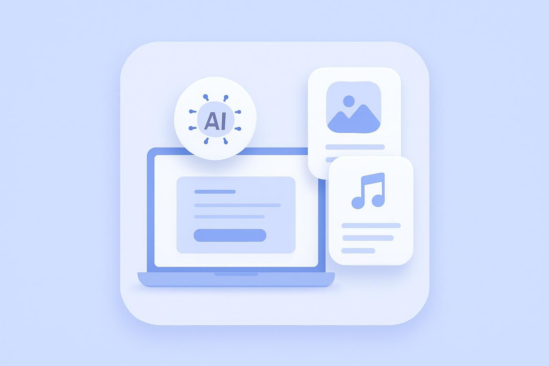
Synthetic intelligence (AI) is quickly reworking how we study and educate, making its position in schooling one of the vital talked-about subjects in 2025. From AI tutors that supply personalised studying paths to automated grading methods that lower administrative duties in half, AI is reshaping the normal classroom surroundings.
Larger schooling establishments more and more leverage AI-driven platforms to streamline course suggestions and provide 24/7 assist. In the meantime, Ok-12 colleges are experimenting with immersive studying instruments, corresponding to augmented actuality (AR) and digital actuality (VR), to spark scholar curiosity in new and thrilling methods. As a part of this shift, developments in educational technology proceed to drive innovation, making studying extra interactive and adaptive to particular person wants.
This isn’t only a passing development. A latest Technavio report initiatives that the worldwide Edtech market — primarily fueled by AI — will surpass $170.8 billion by 2029. This surge highlights the rising curiosity in AI adoption and its tangible advantages for college kids and educators. Nevertheless, academics and oldsters have shared legitimate issues about knowledge privateness, potential job displacement, and the shortage of human empathy that some AI instruments exhibit.
On this weblog, we’ll discover the professionals and cons of AI in schooling so you can also make well-informed selections about integrating Edtech tools into your classroom or establishment. We’ll stroll by 5 key advantages and important challenges, providing actionable tips about balancing AI with an important human contact for efficient educating and studying.
Why is AI so necessary in schooling?
AI instruments personalize studying, automate administrative duties, and improve scholar engagement, making schooling extra environment friendly and accessible.
What’s AI in schooling?
AI in schooling makes use of machine studying, pure language processing (NLP), and different clever methods to assist educating and studying. From AI-powered chatbots that provide instant answers to analytics platforms that observe scholar progress, these instruments are reworking lecture rooms and examine areas worldwide.
Actual-world purposes of AI in schooling
- AI-powered grading: Instruments that automate grading for goal assessments like quizzes and multiple-choice exams. These methods can even provide primary suggestions on scholar essays, saving academics precious marking time.
- Adaptive studying platforms: Software program that adjusts the issue stage and the kind of content material based mostly on every scholar’s efficiency and studying pace. This personalised strategy ensures learners aren’t overwhelmed or under-challenged.
- Digital tutoring: AI-driven assistants that supply step-by-step tutorials or hints, mimicking one-on-one teacher-student collaboration exterior the classroom. These tutors could be particularly helpful for after-hours examine classes when actual academics won’t be out there.
- Predictive analytics: Instruments that analyze historic knowledge to identify developments in scholar conduct, corresponding to early warning methods that alert educators if a scholar is perhaps liable to dropping out.
Whereas these improvements make studying extra personalised and environment friendly, in addition they elevate necessary questions on ethics, knowledge privateness, and the position of human academics. AI ought to assist educators, not substitute them — making certain that expertise enhances, fairly than diminishes, the human connection in studying.
5 professionals of AI in schooling
Regardless of the debates round the way forward for AI in lecture rooms, there’s no denying the numerous benefits it may possibly provide when carried out thoughtfully. Under are 5 key benefits of incorporating AI into your instructional packages.
1. Customized studying experiences
AI-driven platforms use algorithms to adapt real-life classes based mostly on a scholar’s strengths, weaknesses, and tempo. This personalised studying strategy ensures that superior learners are challenged whereas those that want extra assist obtain focused assist. Because of this, every scholar can progress at a cushty and motivating fee.
2. 24/7 studying assist
One of many main advantages of AI tutors and chatbots is their availability across the clock. College students can ask questions, obtain immediate suggestions, or revisit course supplies every time they need with out ready for a scheduled class or workplace hours. This function can considerably cut back frustration and improve scholar independence, particularly throughout examination seasons.
Professional Tip
Want immediate tutorial assist anytime? Attempt Jotform’s AI Tutor to get real-time solutions and suggestions, 24/7!
3. Automated administrative duties
Grading papers, scheduling, and managing paperwork could be time-consuming duties for educators. AI can automate these processes, liberating academics to focus on higher-level actions corresponding to mentorship, curriculum design, and progressive educating strategies. Automated methods can deal with repetitive duties effectively, resulting in extra productive and engaged educators in the long term.
4. Immersive and gamified studying
By integrating applied sciences corresponding to VR and AR, AI can energy immersive studying experiences. Think about a Historical past lesson the place college students can step into an historic civilization in digital actuality, or a Biology class the place they’ll discover 3D fashions of the human physique. These interactive eventualities hold college students engaged and cater to totally different studying types, making complicated topics extra accessible and pleasurable.
5. Information-driven insights for educators
AI analytics transcend simply monitoring grades — they supply in-depth insights into how college students work together with course supplies, establish widespread errors, and forecast future efficiency. Lecturers can use these insights to identify struggling college students and intervene with personalised methods rapidly. This data-driven strategy can result in higher scholar outcomes and extra environment friendly useful resource allocation.
Can AI enhance scholar outcomes?
Sure! AI-powered adaptive studying platforms analyze scholar progress and supply personalised suggestions, boosting comprehension and bettering total outcomes.
5 cons of AI in schooling
Whereas some great benefits of AI in schooling are substantial, it’s important to strategy these applied sciences with a crucial eye. Under are 5 of essentially the most important issues and a few attainable options.
1. Potential job displacement for academics
- Problem: AI can automate grading, scheduling, and even sure features of instruction, resulting in fears that academics may grow to be out of date. Nevertheless, many instructional specialists agree that human educators are nonetheless irreplaceable for actions corresponding to emotional assist, mentorship, and complicated problem-solving.
- Resolution: Place AI as a assist instrument fairly than a alternative. By offloading routine duties to AI, academics can concentrate on higher-level engagement, corresponding to one-on-one scholar interactions, project-based studying, and creativity workout routines.
2. Dehumanized studying experiences
- Problem: Irrespective of how superior, AI methods lack real empathy and emotional intelligence. School rooms could grow to be overly reliant on algorithmic suggestions, doubtlessly inflicting college students to really feel remoted or undervalued.
- Resolution: Undertake a blended studying mannequin the place expertise augments (however doesn’t substitute) human interplay. Lecturers can use AI insights to tell and personalize their educating strategies whereas offering the social and emotional assist solely people can provide.
3. Excessive implementation prices
- Problem: Integrating superior AI instruments typically requires important investments in software program licenses, {hardware}, and school coaching. These prices could be prohibitive for colleges already battling tight budgets.
- Resolution: Begin small with cost-effective AI options that sort out essentially the most urgent wants, corresponding to primary grading instruments or free adaptive studying platforms. As your establishment sees tangible advantages, you may progressively scale as much as extra superior or complete AI options.
4. Privateness and moral issues
- Problem: AI methods usually accumulate and analyze giant volumes of scholar knowledge. If not managed correctly, this could result in knowledge breaches, unauthorized entry, or unethical use of non-public data.
- Resolution: Observe strict knowledge privateness insurance policies and work solely with distributors that adjust to related laws, such because the Household Instructional Rights and Privateness Act (FERPA) and the Normal Information Safety Regulation (GDPR). Common audits and clear knowledge governance insurance policies can even mitigate dangers.
Professional Tip
Defend scholar knowledge by following FERPA tips. Learn more about FERPA.
5. Bias in AI algorithms
- Problem: If machine studying fashions are skilled on skewed or unrepresentative knowledge, they’ll inadvertently perpetuate present biases. This may manifest in unfair grading or inaccurate assessments of a scholar’s capabilities. AI bias can considerably impression instructional equity, making it important to acknowledge and deal with potential points early.
- Resolution: Implement rigorous checks on AI outputs and contain educators in reviewing AI-generated suggestions. Often consider and replace the info units that energy AI algorithms to make sure they continue to be equitable and numerous.
How can educators use AI responsibly?
Lecturers ought to monitor and information AI to make sure it enhances studying with out changing human interplay.
Jotform Schooling AI Brokers: Smarter studying and administration
As colleges and universities search for methods to optimize administrative workflows and enhance scholar engagement, Jotform’s Education AI Agents provide a balanced strategy that enhances present educating strategies. As an alternative of aiming to switch academics, our specialised AI assistants streamline back-end processes so educators can dedicate extra time to instruction and scholar mentorship.
Schooling AI Brokers are designed to remodel on-line varieties and surveys into clever, interactive knowledge assortment experiences for instructional establishments. Whether or not you’re dealing with scholar enrollment, course registrations, tutorial surveys, or useful resource distribution, these AI Brokers can handle duties rapidly and effectively — all with out requiring any coding experience. To create one
- Merely add an present kind, choose a template, or begin from scratch.
- Practice the AI along with your establishment’s paperwork, insurance policies, or curricula to make sure constant, high-quality interactions with college students and employees.
- Handle your brokers and assets with Jotform’s AI-assisted tools.
By automating these time-consuming duties, you may cut back administrative burdens, pace up software processes, and supply fast responses to widespread inquiries — permitting your educators to refocus on fostering significant teacher-student collaboration.
AI as a educating companion, not a alternative
AI in schooling isn’t a development — it’s right here to remain and has the potential to redefine the classroom expertise. Nevertheless, the important thing to profitable integration is putting the suitable stability between technological effectivity and human empathy. Whereas AI-driven Edtech instruments can personalize studying, automate administrative duties, and provide real-time assist, they’ll’t replicate the heat, creativity, and emotional intelligence that solely human educators convey to the desk.
Educators can implement AI responsibly by remaining conscious of potential pitfalls like privateness points, prices, and algorithmic biases. This strategy ensures college students reap the advantages of cutting-edge innovation with out sacrificing the interpersonal components that make studying really transformative.
What’s the way forward for AI in schooling?
AI will proceed personalizing studying, automating admin duties, and supporting academics — however human educators will at all times be important.
Embracing AI doesn’t imply we have now to lose the guts of schooling. As an alternative, we will use these instruments to assist immersive studying, spark curiosity, and empower academics to concentrate on what actually issues: guiding, inspiring, and caring for college kids each step of the way in which.
Photograph by Nathan Cima on Unsplash
Source link











![[Bombshell News] Consultants say we’re DANGEROUSLY near a recession 🚨 [Bombshell News] Consultants say we’re DANGEROUSLY near a recession 🚨](https://i.ytimg.com/vi/DvnKvkjdsMc/maxresdefault.jpg)

